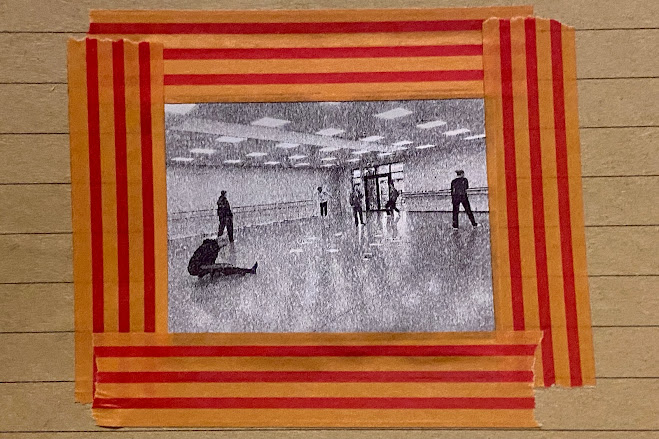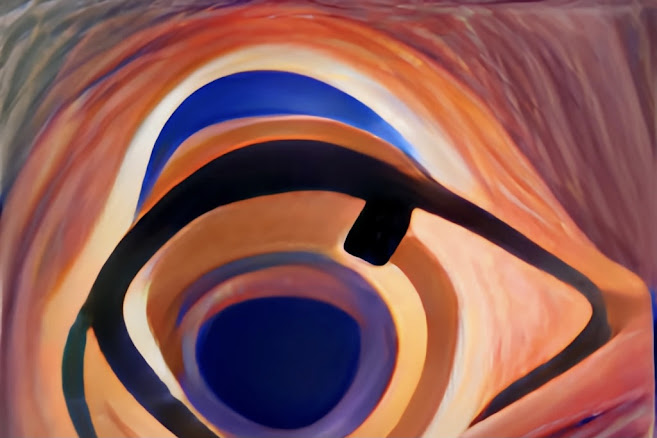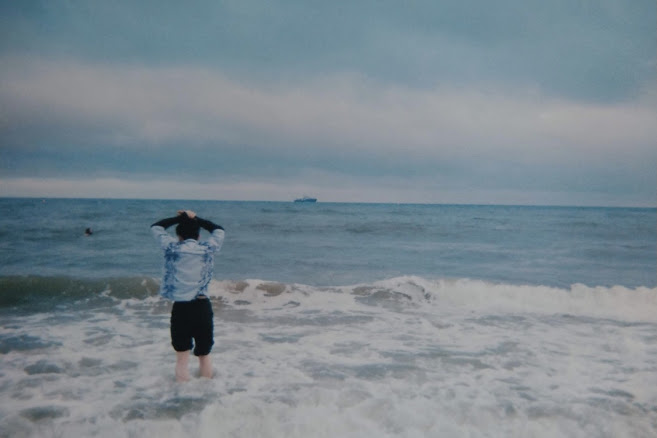13. until the real thing comes along
I have been thinking about this a lot, it feels very complex - it becomes all mashed together with beliefs about storytelling and art in general, a desire to feel something, a desire to express, to be together, to be slow, to be fast, to be gentle, to be wild and reckless, to listen and get lost in the details, to entertain simplicity, to offer minimalism as a way into the depths of our fantasies, to assert the right to make bad art, to tell incomplete stories, to make selfish work… All of these things.
I am thinking about words and language - trying to make space for those who do not experience the world in a primarily linguistic mode. So for me, I am trying to communicate my ideas without words and to understand my ideas beyond words.
One of the clearest ways I observe this being done is through sensory stories, and I have been trying to communicate and imagine my ideas as sensory stories - there are some really great resources that have guided me through this. Firstly there is Sensory-Being for Sensory Beings: creating entrancing sensory experiences (2017) which is a beautiful book by Joanna Grace and secondly there is a great report from Oily Cart titled Being With in Sensory Theatre (2022) by Jill Goodwin and Ellie Griffiths. These have softly been guiding me, whilst also providing the perfect contextualisation to why this kind of communication is important.
Turning Ideas Into Sensory Stories
In terms of how the communication is done, there are some short and simple guides to producing sensory stories, my favourite is Turning picture books into sensory stories by Ailie Finlay. On the topic of communicating your ideas it guides the storyteller through a really clear process.
Finlay suggests that the largest sensory impression should be made at the climax of the story, which is really interesting from a composition perspective, it makes perfect sense in the context of storytelling - but I have definitely written in academic contexts where the form itself is monotone, and you would be hard pushed to find a climax. That being said, I am more and more connecting the twenty minutes it takes to read something I have written to the twenty minutes an audience member would sit and watch a show that I have choreographed. I am structuring the works in a way to express what I need to, so in the context of writing ideas and then subsequently sensorially enhancing (or prioritising) it is nice to think about the ebb and flow of the size of sensory experience as a way into expressing our ideas.
I also like Finlay's reminder that it is important to identify the quality of the thing we are discussing rather than 'just' the thing itself - giving the example of water in a sensory story, if being wet is important we might spray the audience, if the vastness of a body of water is important we might use a large piece of flowing fabric. This points nicely towards specificity - I experience that people can worry that sensory communication requires simplicity, but I experience something else - it seems to require a sure and steady hand which can point to the essence of the idea so this can be dominant during the storytelling.
There is also a reminder that language is a sensory experience - it is good to be reminded that words have sounds, maybe even we can notice the different process the mouth goes through to form certain words compared to others. I am sure many artists do consider this, I definitely read my work out-loud and often edit in response to the arrangement of the sentence, noticing sounds that are too harsh or too soft or just phrases containing too many occurrences of the letter T.
Future Communications...
I would love to get lost in the world of smell and really discover how ideas might smell. I have some ideas but I also have a very limited sense of smell, and I would really like to just spend some time smelling more and understanding how I can communicate using this form.
I would also like to think more around the personal histories we have of sensory experience.
Felix Barrett talks in The Punchdrunk Encyclopaedia (Machon, 2018) about taking inspiration from the family attic full of old heirlooms, this has a clear scent - the mustiness of old furniture, books and clothes. I love this smell, it brings me towards the excitement of the best second hand shops I have rummaged through during my life. However, if you had just lost a loved one, and had to sort through their belongings - this musty smell might have a very different emotional connection.
I am a little on the fence about this, I wonder if we can tell stories which utilise this power of our personal histories reinterpreting the presented stimuli, I also wonder if we can tell stories which try and account for and clearly signpost the audience to the desired emotional responses despite our individual experiences?
-
'Until The Real Thing Comes Alone' - The Complete Piano Duets, Ella Fitzgerald, Track 13




Comments
Post a Comment